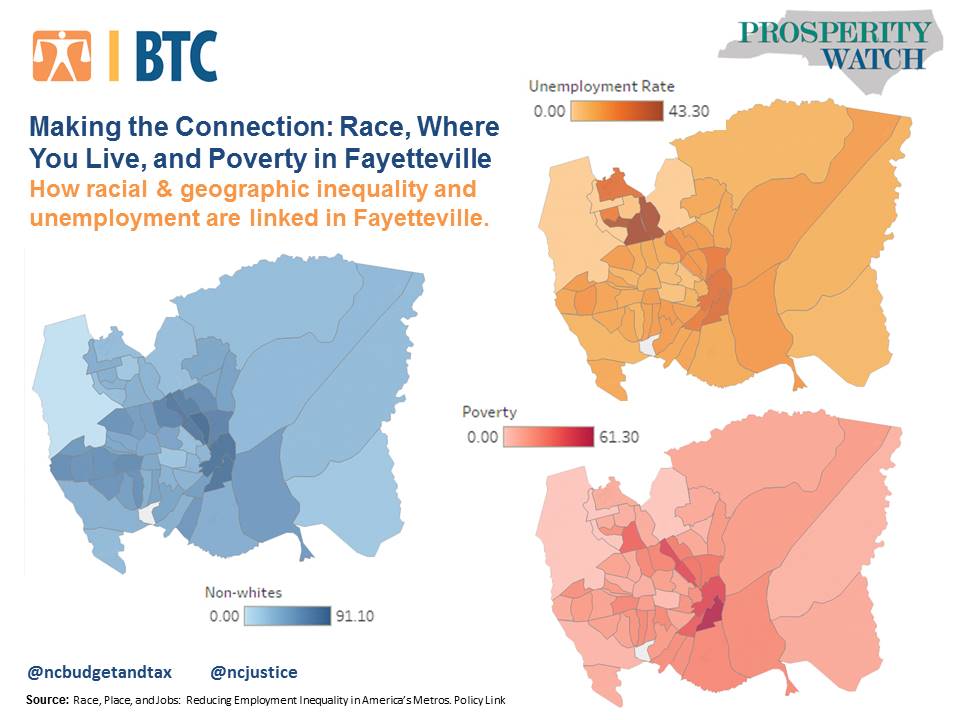Prosperity Watch (Issue 72, No. 1)
April 3, 2017
The promise of America has always been the belief that if you work hard you can achieve prosperity. For families of color, however, achieving the American dream often means having to overcome structural disadvantages. The historical legacy of legal segregation and continued practices of exclusion toward people of color in North Carolina have left countless families of color in communities without organizations and services that can deliver prosperity. A new report by Policy Link highlights how racial and geographic inequalities in unemployment have a combined impact on economic opportunities for families of color.
Researchers examined the largest 150 metropolitan regions in the country, looking closely at neighborhoods using U.S. Census tracts in order to examine concentrations of communities of color in these areas. They found that racial and geographic inequalities in unemployment tend to go together in most of the largest metros. This is because unemployed workers of color are more likely than White workers to live in neighborhoods with higher numbers of unemployed workers. Though an average of 14 percent of all unemployed workers reside in high-unemployment tracts, there are stark racial differences in these areas. A mere 7 percent of unemployed White workers live in high-unemployment tracts, compared to 23 percent of unemployed workers of color. Furthermore, regardless of employment status, people of color are more likely to live in high-unemployment neighborhoods than White residents. Finally, because Black Americans account for a large portion of the metropolitan regions that have both racial and geographic inequality in unemployment, these findings also point to the enduring residential segregation that Black families experience.
Fayetteville is one of the North Carolina municipalities highlighted in the report. Fayetteville is the county seat of Cumberland County, with a population of 200,564 as of 2010. Using census tract data from Fayetteville, the map below illustrates how racial and spatial inequality and unemployment are correlated in Fayetteville.
The concentration of unemployed workers in a limited number of neighborhoods carries implications for strategies to target resources connecting workers to available jobs. The correlation of unemployment rates, race, and geographic inequalities also reflects the consequences of disinvestment in communities who need it the most. Refusing to address these inequities will only continue to hold North Carolinian families back from achieving prosperity in our state.
 Justice Circle
Justice Circle 
